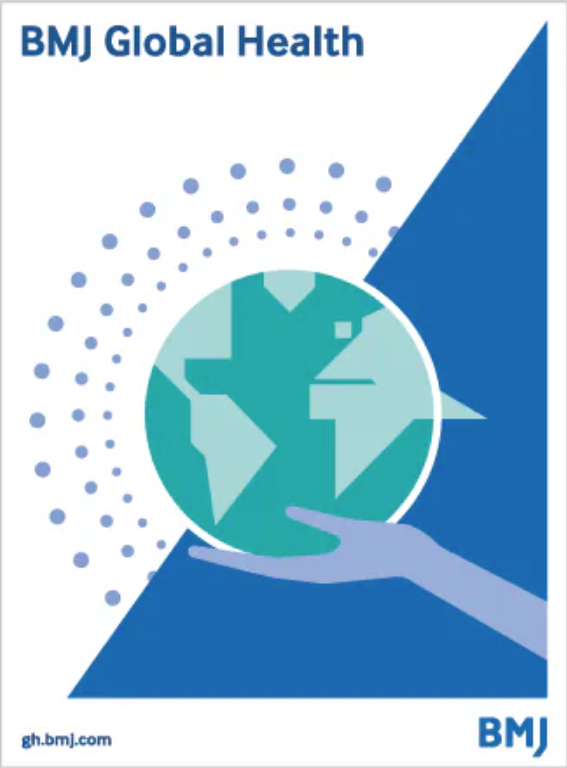Training health workers and community influencers to be Vaccine Champions: a mixed-methods RE-AIM evaluation
IF 7.1
2区 医学
Q1 PUBLIC, ENVIRONMENTAL & OCCUPATIONAL HEALTH
引用次数: 0
Abstract
Introduction Increasing trust and confidence in vaccines is a global priority, as countries have grappled with delivering COVID-19 vaccines, maintaining routine childhood vaccination rates and introducing new vaccines. Community-based vaccine promotion interventions are commonly implemented, but effectiveness evidence is limited. In 2022, supported by the Australian Government and in partnership with Fiji’s Ministry of Health and UNICEF, we codesigned, delivered and comprehensively evaluated a vaccine education and communication training programme for health workers and community influencers to promote COVID-19 and routine immunisation. Methods The Vaccine Champions programme included three phases: (1) codesign with Fiji stakeholders; (2) vaccine education and communication training for Vaccine Champions and (3) support for Champions to deliver community vaccine discussion sessions over 6 months. The RE-AIM framework evaluation measured programme reach, effectiveness, adoption, implementation and maintenance. Mixed-methods data were collected through interviews, surveys and field notes, integrating qualitative and quantitative data to triangulate findings. Primary outcomes included Champions’ knowledge, communication self-efficacy, trust in COVID-19 vaccines, programme satisfaction and community members’ intention to vaccinate. Results We trained 35 Champions (27/35 female), including health workers, faith and community influencers. Half had a health background (17/35). Champions conducted 54 discussion sessions, reaching 1717 community members. Most Champions (22/35) conducted at least 1 session, with 16 running 3 or more. Champions who did not run sessions reported barriers like lack of confidence and competing duties. Training increased Champions’ communication self-efficacy and trust in COVID-19 vaccines. Community member intention to vaccinate increased from 41% (394/960) to 83% (822/991) before and after a session. The programme was well received with interest in continued engagement. Conclusion Training health workers and community Vaccine Champions can promote vaccine confidence. Programmes require government support and engagement for sustainability. Robust evaluation frameworks are needed to build the evidence base. Data are available on reasonable request. Deidentified individual participant data that underlie the results reported in this article, as well as the study protocol and data collection instruments, will be made available from the point of, and up to 3 years after the acceptance for publication of the main findings. Data will be shared with researchers who provide a methodologically sound proposal, for analyses that achieve the aims in the approved proposal. Proposals should be directed to jess.kaufman@mcri.edu.au. To gain access, data requesters will need to sign a data access agreement.培训卫生工作者和社区影响者成为疫苗卫士:RE-AIM 混合方法评估
导言:提高人们对疫苗的信任和信心是全球的当务之急,因为各国一直在努力提供 COVID-19 疫苗、维持常规儿童疫苗接种率并引进新疫苗。基于社区的疫苗推广干预措施已普遍实施,但有效性证据有限。2022 年,在澳大利亚政府的支持下,我们与斐济卫生部和联合国儿童基金会合作,为卫生工作者和社区影响者设计、实施并全面评估了一项疫苗教育和沟通培训计划,以推广 COVID-19 和常规免疫接种。方法 疫苗接种倡导者计划包括三个阶段:(1) 与斐济利益相关方共同设计;(2) 为疫苗接种倡导者提供疫苗教育和沟通培训;(3) 支持倡导者在 6 个月内开展社区疫苗讨论活动。RE-AIM 框架评估衡量了计划的覆盖范围、有效性、采用、实施和维护。通过访谈、调查和实地记录收集混合方法数据,整合定性和定量数据,以三角测量结果。主要结果包括支持者的知识、沟通自我效能、对 COVID-19 疫苗的信任、对项目的满意度以及社区成员接种疫苗的意愿。结果 我们培训了 35 名倡导者(女性占 27/35),其中包括卫生工作者、信仰者和社区影响者。半数具有卫生背景(17/35)。倡导者们共开展了 54 场讨论,接触了 1717 名社区成员。大多数 "支持者"(22/35)至少开展了一次讨论,其中 16 人开展了 3 次或 3 次以上。没有开展讨论的支持者表示存在障碍,如缺乏自信和职责冲突。培训提高了卫士们的沟通自我效能和对 COVID-19 疫苗的信任。社区成员的疫苗接种意向在培训前后从 41%(394/960)提高到 83%(822/991)。该计划广受好评,社区成员有兴趣继续参与。结论 对卫生工作者和社区疫苗接种倡导者进行培训可以增强对疫苗的信心。计划的可持续性需要政府的支持和参与。需要强有力的评估框架来建立证据基础。可根据合理要求提供数据。本文所报告结果的基础数据、研究方案和数据收集工具将在主要研究结果被接受发表后 3 年内公开。数据将与提供方法合理的建议的研究人员共享,用于实现经批准的建议中的目标的分析。建议应直接发送至 jess.kaufman@mcri.edu.au。数据申请者需要签署数据访问协议才能访问数据。
本文章由计算机程序翻译,如有差异,请以英文原文为准。
求助全文
约1分钟内获得全文
求助全文
来源期刊

BMJ Global Health
Medicine-Health Policy
CiteScore
11.40
自引率
4.90%
发文量
429
审稿时长
18 weeks
期刊介绍:
BMJ Global Health is an online Open Access journal from BMJ that focuses on publishing high-quality peer-reviewed content pertinent to individuals engaged in global health, including policy makers, funders, researchers, clinicians, and frontline healthcare workers. The journal encompasses all facets of global health, with a special emphasis on submissions addressing underfunded areas such as non-communicable diseases (NCDs). It welcomes research across all study phases and designs, from study protocols to phase I trials to meta-analyses, including small or specialized studies. The journal also encourages opinionated discussions on controversial topics.
 求助内容:
求助内容: 应助结果提醒方式:
应助结果提醒方式:


